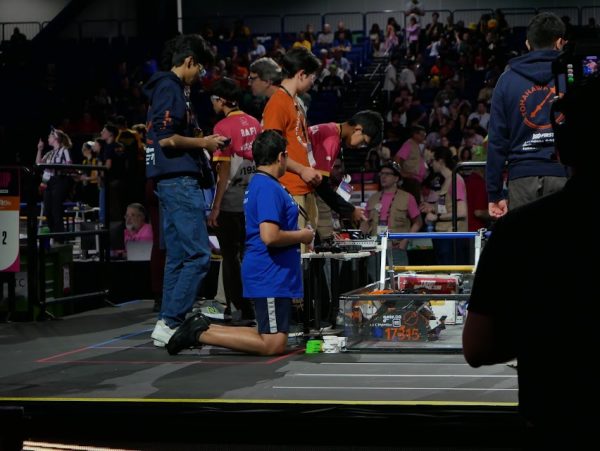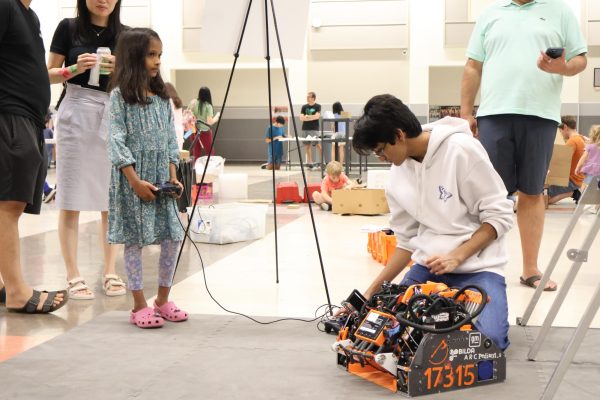Students and Parents attend Anxiety Presentation

Parents and students attended a presentation focusing on student anxiety on Thursday, Nov. 14 in the library. Throughout the event, a visiting therapist discussed the importance of recognizing a child’s struggles regarding anxiety and emotional relationships with their parents. Everyone in the room contributed to the discussion by asking questions and sharing personal struggles.
Clinical Manager at Insight Behavioral Health Center, Wendi Kozlowski, spoke with parents about the major factors that cause student’s unhappiness. Of these were emotional relationships, media, and influential peers. The audience learned that anxiety is something everyone needs an amount of. Too little anxiety can lead to loss of engagement and work ethic while too much can lead to one being unable to focus.
“It is equally important for students and parents to recognize what makes them anxious,” Guidance Counselor Christine Stanton said. “Being able to understand your own fears and anxiety as a parent allows you to be a role model for your student.”
Ms. Kozlowski explained that chronic stress symptoms can vary, and a parent must observe the situation before judging their child’s emotions. The best way for a parent to help their child with stressful conflicts is to praise their efforts regardless of other outcomes. She stressed that family connection and support is one of the most important things for a child’s developing brain.
“The most important thing about communication is that you are talking to a trusted adult,” Ms. Kozlowski said. “I think for adolescents, in general, [they are] really drawn to talk to [their] peers, but that’s a lot of pressure to put on someone [who is] in the same age bracket, who does not have the same resources.”
When listing helpful techniques to calm down, the audience found themselves distracted by their five senses. A presentation of anxiety became an interactive game with everyone in the room.
“Breathing is something that you can do anywhere,” Guidance Counselor Trissa Williams said. “It immediately physiologically regulates your body and can bring you into your rational part of the brain.”
Wendi shared that being a parent makes her want to fix her kid’s problems, but parents are not always able to fix everything. It is important to help a student slow down by tapping into what is real and important. She even suggested using apps with meditation and relaxation suggesting that technology isn’t always the enemy in mental health.
“Anxiety targets the limbic system,” Wendi said. “Our brain does not know the difference between a real tiger and a perceived threat like school and [its] difficulties so biologically we respond the same way to those threats.”
The therapist wrapped up the presentation by explaining how to recognize a child’s restrictions and abilities when applying themselves. The audience led discussions relieved everyone of this scary subject. Westwood guidance counselors currently provide interactive ways to cope with stress and anxiousness that are open to any student at Westwood.
“Presentations like this kinda put how I feel every day into perspective,” Sophia Castaneda ‘20 said. “Usually I feel isolated with my anxiety, but stuff like this makes me feel more confident because I’ll have the tools [that] I need and the support system.”

Hey! I am in the class of ‘22 here at Westwood. Outside the press room you can find me hours deep in a book or playing Minecraft. I am the definition...

![Westwood students experienced the impacts of class cuts resulting from Round Rock ISD (RRISD)s budget deficit. The recently approved general fund budget could have played a role in returning some of the cut classes. We all hope that [the general fund budget] will bring additional funding and cost savings, potentially help with course and extracurricular operations, and provide deserving teachers with an increase in salary as well as provide better education opportunities for students, Marlene Luo 25 said.](https://westwoodhorizon.com/wp-content/uploads/2024/07/ww-pic-600x479.jpg)



